Safety glasses are often worn to protect eyes from flying debris, dust, and other potential hazards. For many people, safety glasses are a necessary part of their job. But could these protective eyewear actually be causing blurred vision in some cases? In this blog post, we will explore the potential connection between safety glasses and blurred vision. Read on to find out if you should be concerned about your own vision health while wearing safety glasses.
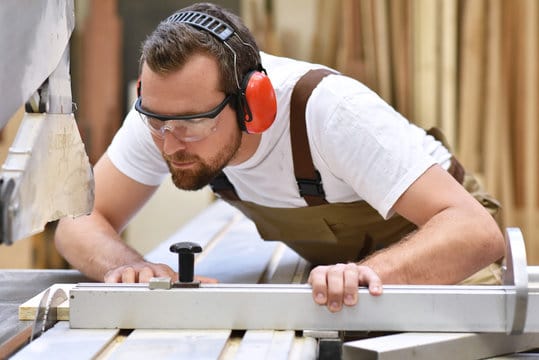
Introduction to Safety Glasses
When it comes to safety glasses, many people are unsure if they can actually cause eye strain. In fact, there are a few different types of safety glasses that can actually cause blurred vision.
The first type of safety glasses that can cause blurred vision are those that have a high level of magnification. When you wear these types of glasses, your eyes have to work harder to focus on the objects in front of you. This can lead to eyestrain and even eye fatigue.
The second type of safety glasses that can cause blurred vision are those that have a low level of magnification. These glasses typically have a wider frame and are designed to protect your eyes from debris and dust. However, because these glasses don’t have a high magnification level, they don’t usually cause blurred vision.
If you’re concerned about whether or not safety glasses can actually cause blurred vision, it’s important to talk to your doctor or optometrist about the best type of safety glasses for you.
Benefits of Wearing Safety Glasses
Wearing safety glasses can provide many benefits, including reducing the risk of eye injuries. Safety glasses can help protect your eyes from harmful UV radiation, debris, and other particles. They can also help reduce glare and improve your vision in low-light conditions.
Safety glasses are also a good way to protect your eyes from other dangers. For example, they can help protect you from falls and other accidents. And they can help you see better in bright sunlight or when working with hazardous materials.
So why wear safety glasses? There are many reasons. In fact, wearing safety glasses is one of the best ways to protect your eyes and keep them healthy.
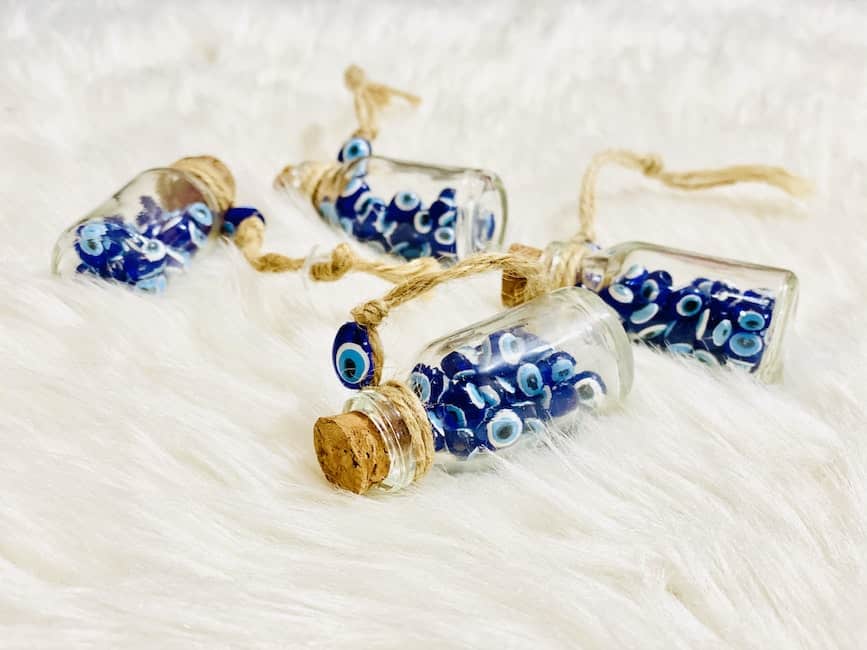
Potential Causes of Eye Strain
While wearing safety glasses can help protect your eyes from injury, there are also a few potential causes of eye strain. If you experience any of the following symptoms, it may be a sign to take off your safety glasses and rest your eyes:
- Eyestrain caused by looking at a computer screen for an extended period of time
- Eyestrain caused by reading for an extended period of time
- Eyestrain caused by working in a bright environment
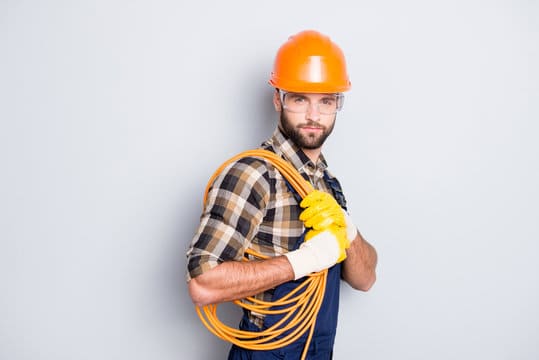
How Safety Glasses Can Cause Blurred Vision
When you wear safety glasses, you are protecting your eyes from potential injury. However, wearing safety glasses can also cause blurred vision. The reason for this is that the lenses in safety glasses are made of a hard material, which can cause your eyes to strain when you try to see clearly. When you wear safety glasses, it is important to adjust the fit so that the lenses are positioned directly over your eyes. If the lenses are positioned too high or too low on your face, they will cause strain on your eyes.

The Importance of Regular Eye Exams
It is important for anyone who wears safety glasses to have regular eye exams. This can help identify any potential problems early and allow for proper treatment. Problems with the eyes may be difficult to see, but they can eventually lead to vision loss or other health complications.
Alternatives to Safety Glasses
There are a few alternatives to wearing safety glasses that can help reduce eye strain. Ridding yourself of the need for eye protection at all times is one option, and choosing an alternative style of glasses can also be helpful in reducing tension on your eyes. sunglasses offer relief for those who suffer from allergies or light sensitivity, while using contacts instead of traditional eyeglasses can also lessen the potential for strain or fatigue. If you still find yourself struggling with daily use of safety glasses, consider consulting with an ophthalmologist to see if there is any other solution that would work better for you.

What to Look for When Purchasing Safety Glasses
Potential Causes of Blurred Vision
When purchasing safety glasses, it is important to consider the type of lens and the frame. Different types of lenses can cause different levels of eye strain. For example, bifocal lenses can cause more strain on the nearsighted eye than the farsighted eye. When choosing a frame, it is important to find one that is comfortable and fits well. Some frames have temples that curve around the ears, which can help reduce eyestrain.
One potential cause of blurred vision is a condition called presbyopia. Presbyopia is a normal age-related change in the eye that results in difficulty focusing on close objects. Some common causes of presbyopia include spending too much time reading or working at a computer, wearing contact lenses for long periods of time, and being nearsighted. In addition to blurred vision, presbyopia can also lead to headaches and eyestrain.
If you experience blurred vision or eye strain when wearing safety glasses, it is important to consult a doctor. Tests may be needed to determine the cause of the problem.
Tips for Preventing Blurred Vision from Safety Glasses
When shopping for safety glasses, be sure to take into consideration your own eyesight and the potential strain that they may cause. Many people opt for more eyecare-friendly options, like prescription glasses or contact lenses, when purchasing these types of sunglasses. However, others find that wearing them all day can actually lead to blurry vision. There are a few things you can do in order to prevent this:
First and foremost, always make sure that the Protective Eyewear you’re buying fits well and is comfortable. If it causes any discomfort whatsoever to wear them all day long, chances are you won’t use them very often – which defeats the purpose!
Second, if your vision starts to seem blurry after wearing your safety glasses for a while, take them off and give your eyes a break. If the problem persists, it may be time to see an eye doctor.
Finally, be sure to keep your glasses clean. If they start to get dirty, use a mild soap and water solution and rinse them off thoroughly. Do not use harsh chemicals or abrasives, as this could damage the lenses.
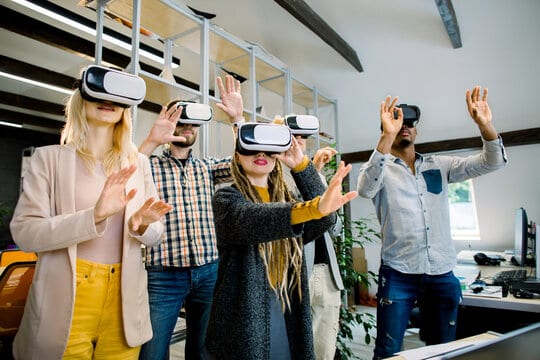
Common Mistakes People Make When Wearing Safety Glasses
There are a few things that people commonly do that can lead to blurred vision when wearing safety glasses. One is not using the correct size, as glasses can be too large or small and cause them to distort your vision. Another mistake is not adjusting the glasses frequently enough – if they’re sticking out of your ears or constantly falling down your nose, you’ll need to adjust them frequently in order for them to stay on properly. And lastly, having prescription lenses does not mean you can avoid headaches from having poor vision; many people who wear prescription eyeglasses still experience discomfort from their eyeglasses because of the way their eyes’ focusing muscles work.
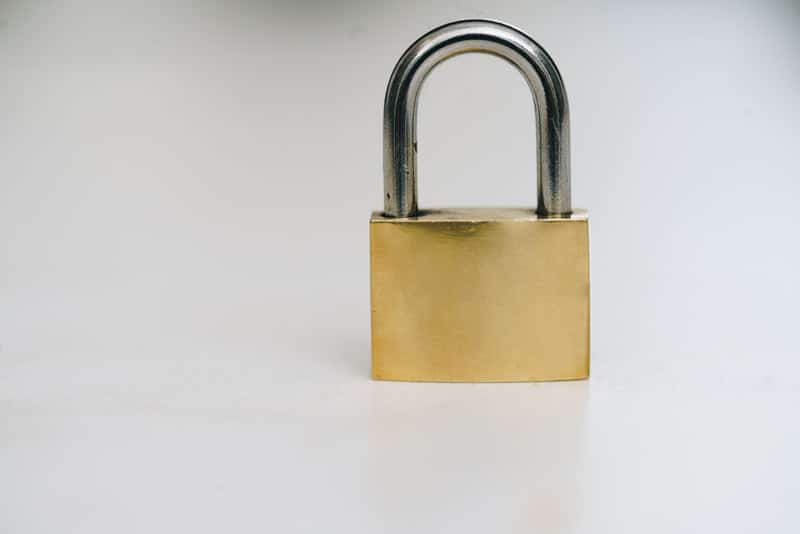
How to Properly Care for Your Safety Glasses
What are Safety Glasses?
When it comes to safety glasses, it is important to be sure that you are taking care of them in the right way. Properly cleaning and caring for your glasses can help keep them working properly and preventing eye strain. Here are some tips on how to clean safety glasses:
- Before cleaning, first remove any debris or dried milk from the lenses with a tissue or cloth.
- Then use a mild detergent and water solution to wash the inside of the lens; make sure to rinse off all the soap residue. If any liquid gets into the hinge mechanism, it can cause damage.
- Finally, dry the glasses with a soft cloth or air pressure washer. Make sure not to apply too much pressure as this could cause the glasses to break.
When it comes to taking care of safety glasses, it is important to keep in mind a few key points:
- Always store your glasses in a cool, dry place free from dust and debris.
- When not in use, carefully fold the arms back behind the heads of the glasses so they do not become bent or twisted.
Preventative Measures for Blurred Vision
Many people put off wearing safety glasses because they are concerned about their vision. However, the benefits of wearing safety glasses can be considerable: you may be able to avoid an injury or protect your eyes from environmental hazards.
When choosing safety glasses, look for a style that fits comfortably and shields your whole eye. Be sure the lenses have sufficient protection against UV light and glare. If you wear prescription eyeglasses, be sure to take them with you when using safety glasses.
To prevent blurred vision while wearing safety glasses, follow these tips:
- Avoid applying pressure to your eyes while wearing the glasses. This can increase fatigue and lead to discomfort or even pain in the eyes. Instead, gently place the frames on your face; adjust them as necessary.
- Keep your head and glasses cool, especially during hot weather. This will help to prevent eyestrain and headaches.
- Practice using the glasses at home before you go out in public. This way, you can get a feel for how they fit, how they shade your eyes, and how well they protect against glare and UV light.
- Whenever possible, avoid close interactions with people or animals that might cause them to smear their eye makeup or spit on the lenses of the safety glasses.

Conclusion: The Benefits of Wearing Safety Glasses Outweigh the Risks
The benefits of wearing safety glasses outweigh the risks, especially when it comes to preventing blurred vision. The eyewear can help protect your eyes from harmful UV rays, debris, and other particles. Additionally, they can help reduce the risk of eye strain and other associated health problems.
FAQs About Eye Strain and Safety Glasses
Is wearing safety glasses really necessary?
There is no definite answer to this question since every person experiences different levels of eye strain when using glasses. However, most experts agree that wearing safety glasses can prevent severe eye injuries.
For example, if you are working with hazardous materials, it is always a good idea to wear safety goggles and a face shield. Wearing these accessories will help protect your eyes from chemical exposure and debris.
Safety glasses also offer protection against other potential hazards such as flying objects or falls. In fact, according to the American National Standards Institute (ANSI), “The use of any type of protective eyewear that provides protection for the front side of the eye is encouraged whenever there is a potential for injury.”
So whether you are trying to avoid an injury or just want to enjoy your leisure time safely, it is important to wear appropriate safety glasses when possible.
Are prescription sunglasses safe to wear?
Many people believe that prescription sunglasses are safer than regular sunglasses because they have specialized lenses that block out more light without affecting your vision. However, there have been cases where people have ended up injuring their eyes after wearing prescription sunglasses at night without proper sun-sensing devices attached to them (such as clip-ons). So while prescriptions may be safer than regular sunglasses when used correctly, always consult with your doctor before selecting a pair – especially if you are not used to wearing eyeglasses during day or evening hours.
In conclusion, safety glasses are an important piece of protective equipment that can help to keep your eyes safe from harm. While it is possible for safety glasses to cause eye strain, there are steps you can take to reduce the risk. Regular eye exams are also important for maintaining healthy vision and reducing the risk of long-term damage. For more information on eye health and safety glasses, be sure to check out our other content.


